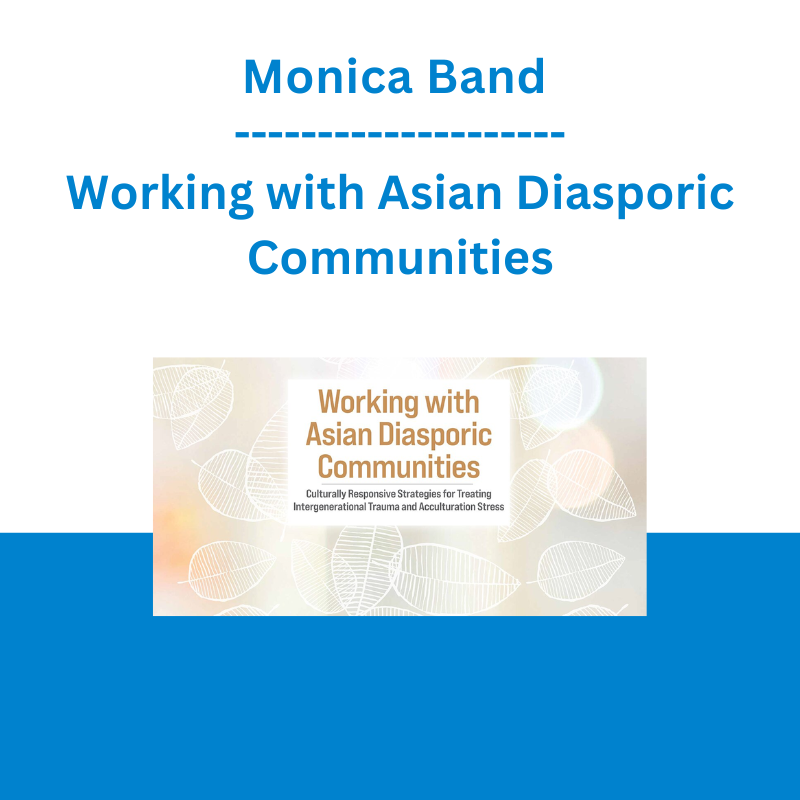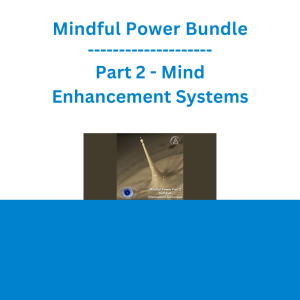*** Proof of Product ***
Exploring the Essential Features of “Monica Band – Working with Asian Diasporic Communities: Culturally Responsive Strategies for Treating Intergenerational Trauma and Acculturation Stress “
Speaker: Dr. Monica Band, EdD, LPC
Duration: 6 Hours 25 Minutes
Format: Audio and Video
Copyright: Feb 02, 2024
Media Type: Digital Seminar
Description
There is no universal “Asian” experience. The Asian Diasporic community is incredibly diverse and these clients encompass people from various countries, languages, religions, and traditions.
As a therapist, navigating the intricate tapestry of backgrounds and experiences care can feel overwhelming. How can you make sure you’re getting it right without becoming a cultural expert?
But here’s the thing, you don’t have to be.
In this training I’ll show you how you can create a therapeutic environment that truly understands and respects the unique needs of each Asian identifying client…
…all without feeling like you need to understand every nuance or reinvent your therapeutic skills.
So watch me, award winning mental health therapist and educator, Dr. Monica Band, LPC, CRC, NCC, ASC, CCC and learn how to apply an intersectional and culturally responsive lens when treating the diverse range of prominent issues within the Asian American and Asian Diaspora communities. I will help you:
- Effectively address and support clients when they share experiences of racial hate and discrimination.
- Break down cultural barriers surrounding mental health issues within Asian American communities.
- Navigate diverse communication styles and non-verbal cues to connect authentically with clients.
- Customize assessments for precise diagnoses and personalized treatment.
- Offer culturally tailored interventions for maximum client engagement and treatment commitment
Finish this training with concrete strategies and memorable case examples so you can apply an integrative, trauma-informed approach to your work with the Asian Diasporic Communities!
Purchase now!
Dr. Monica Band
Speaker
Dr. Monica Band, EdD, LPC
Mindful Healing Counseling Services, LLC
Objectives
- Identify how historical, sociopolitical, and environmental factors impact the therapeutic relationship.
- Develop strategies to broach culturally relevant conversations.
- Facilitate development and exploration of racial identity.
- Apply the concepts of Intersectionality, Critical Race Theory, and Racial Identity Development models in session.
- Summarize the impacts of race, ethnicity and other aspects of privilege and oppression.
- Utilize somatic strategies in session to address attachment and intergenerational trauma wounds.
Outline
Engaging in the Asian Diaspora Historical Grounding and Cultural Considerations
- Ethical standards for culturally competent practice
- Identify evolving terms of reference for the community
- Overview of common stereotypes and biases
- Barriers to help seeking and social determinants of recent health and mental health statistics
Theories and Case Conceptualization for culturally responsive care
- Understand the historical influences on Asian Diaspora communities on racial identity formation
- Code of ethics
- Challenging stereotypes
- Intersectionality, Critical Race Theory, and Racial Identity Development models
- Exercise: Strategies provided of questions to ask during intake
Integrative Models in Treatment
- Culturally responsive intake process
- Address attachment and attunement wounds in session
- Explore themes of belonging, identity, and individuation
- Explore themes of familial expectations, assimilation, and acculturation
- Case example: Forming goals with IFS on identity and trauma
Interventions
- Somatic issues and transference
- Introspective exposure
- Narrative: Personification and first-person narrative
- Identify parts: IFS imagining techniques, room techniques, unburdening
- Broaching: Trauma based on Eastern vs. Western parenting
- Case example: Address somatic dysregulation
- Exercise: Value-Based Living
Exploring Themes of Attachment
- Differences in abandonment vs. loss
- Guilt and sacrifice bond
- Ambivalence as a “safe” option for attachment
- Decoding love languages with intergenerational considerations
- Deciphering independence from lack of availability
Overcoming Limitations of the research & Potential Risks
- Diversity within communities limits research and understanding
- Shame, stigma, language barriers impact rates of help seeking
- After-care post sessions to address somatic issues
- Lack of representation within the profession
- Evolving and changing needs
Target Audience
- Counselors
- Social Workers
- Psychologists
- Case Managers
- Addiction Counselors
- Therapists
- Art Therapists
- Marriage & Family Therapists
- Psychiatrists
- Other Mental Health Professionals
- Nurses
- Physicians
Please see the full list of alternative group-buy courses available here: https://lunacourse.com/shop/










 Alphashark - The AlphaShark SV-Scalper
Alphashark - The AlphaShark SV-Scalper  Mindful Power Bundle Part 2 - Mind Enhancement Systems
Mindful Power Bundle Part 2 - Mind Enhancement Systems  Toshko Raychev - Profit System + ITF Assistant
Toshko Raychev - Profit System + ITF Assistant  George Fontanills & Tom Gentile - Optionetics Wealth Without Worry Course
George Fontanills & Tom Gentile - Optionetics Wealth Without Worry Course  Sara Gottfried - The Hormone Reset Diet: Heal Your Metabolism to Lose Up to 15 Pounds in 21 Days
Sara Gottfried - The Hormone Reset Diet: Heal Your Metabolism to Lose Up to 15 Pounds in 21 Days  Ed Ponsi - Forex Trading
Ed Ponsi - Forex Trading  Fred Haug - Virtual Wholesaling Simplified
Fred Haug - Virtual Wholesaling Simplified  The Daily Traders – Exclusive Trading Mentorship Group
The Daily Traders – Exclusive Trading Mentorship Group  Emanuele Bonanni - My Trading Way
Emanuele Bonanni - My Trading Way  Trade Like Mike - The TLM Playbook 2022
Trade Like Mike - The TLM Playbook 2022